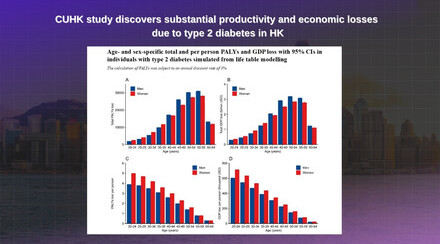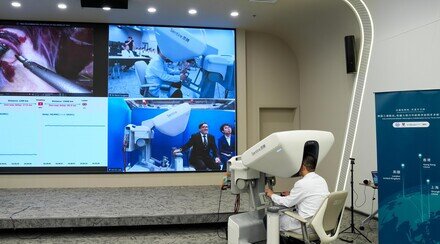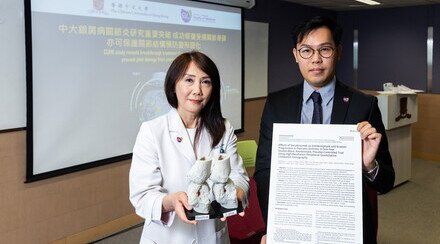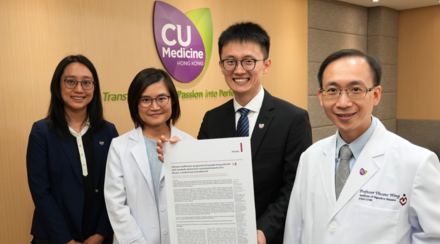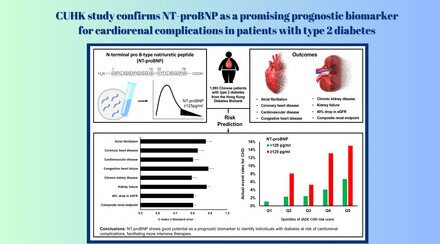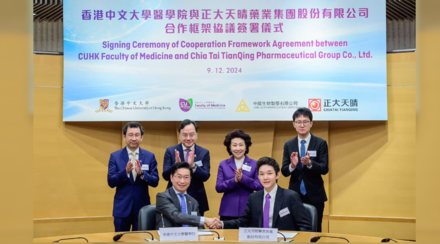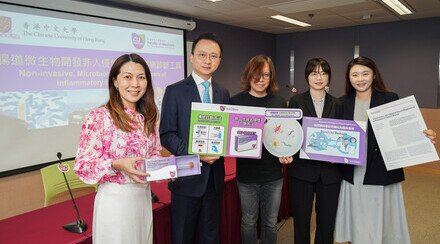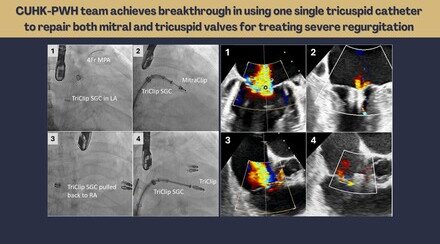Inaugural Collaboration between CUHK and AstraZeneca on Diabetic Kidney Disease Research Advancing a Global Strategy Against Diabetic Kidney Disease
The Department of Medicine and Therapeutics, Faculty of Medicine at The Chinese University of Hong Kong (CUHK) is pleased to announce a new project in collaboration with global biopharmaceutical company AstraZeneca using whole genome sequencing and computational biology to discover biological pathways implicated in Diabetic Kidney Disease (DKD). It aims to solve the current unmet treatment needs of patients and advance a new global strategy against DKD.
DKD is the leading cause of end stage renal disease (ESRD) and a major risk factor of cardiovascular disease and premature death worldwide. The challenge of young-onset diabetes continues to increase the burden of heart disease, stroke and kidney failure with huge socioeconomic implications. Since 1995, CUHK researchers have established the Hong Kong Diabetes Register (HKDR) and Hong Kong Diabetes Biobank, including more than 20,000 patients observed for more than two decades. This is an overarching project that utilizes biobanks, cohorts and databases to discover the causes, trajectories and consequences of diabetes and its comorbidities. Our ultimate goal is to develop precision medicine to predict, prevent and personalize care using biogenetic markers and targeted treatment.
A positive outlook for patients with diabetic kidney disease
In this 2-year research collaboration with the early Cardiovascular, Renal and Metabolism therapeutic and Emerging Markets areas of AstraZeneca, the research team will focus on analyzing the well-phenotyped and available samples from patients already recruited into the HKDR to anticipate the discovery of novel biological pathways and therapeutic targets associated with DKD for drug development with companion diagnostics to address these major unmet needs.

Professor Ronald Ma (1st from left) and Professor Juliana Chan (3rd from left) from CUHK, and AstraZeneca Team
"Together we can strengthen our resources, knowledge and insights, and transform the medical research of diabetes into clinical practices to benefit patients directly; it can also advance the new global strategies and solutions to fight against DKD, and help patients to get the most appropriate treatments.”
“With the rapid development in technology and genomic medicine, the combined expertise between industry and academia can create new knowledge for patient benefits. We hope this collaboration will accelerate the development of biotechnology and strengthen the international leadership and competitiveness of clinical research in Hong Kong.” said Professor Ronald Ma, who is leading a multi-omic project in diabetic complications, supported by the Hong Kong Research Grants Council (RGC) Theme-based Research Scheme and RGC Research Impact Fund.
“AstraZeneca is committed to creating platforms to identify and attract local scientific excellence in order to advance research and development, ultimately benefiting wider society. With this new collaboration platform starting in Hong Kong, we now have seven health innovation hubs (Russia, China, India, Brazil, Argentina, Taiwan, Hong Kong) in our Emerging Markets. This project promises to strengthen collaborations across these emerging biomedical hubs to accelerate innovation and improve outcomes for our society.” said Gwenael Meneux, General Manager of AstraZeneca Hong Kong.











